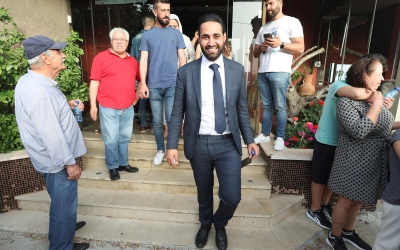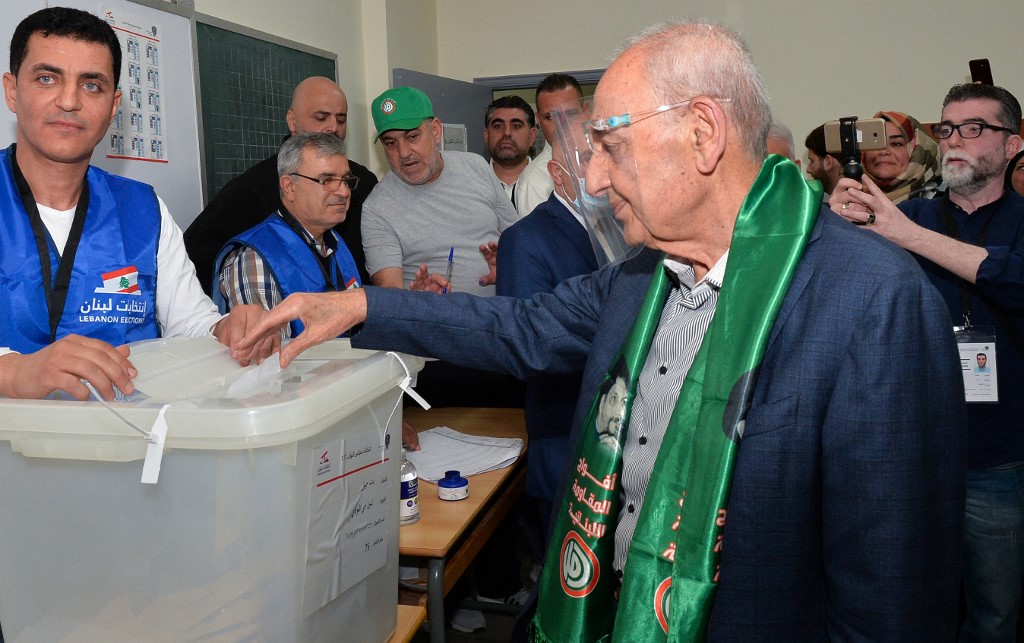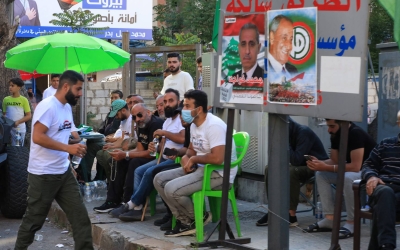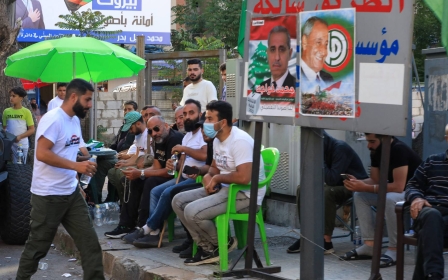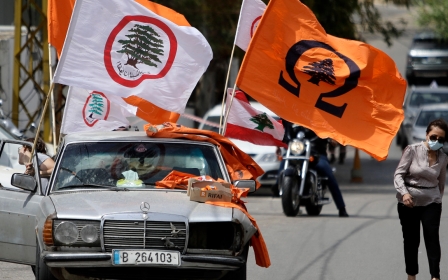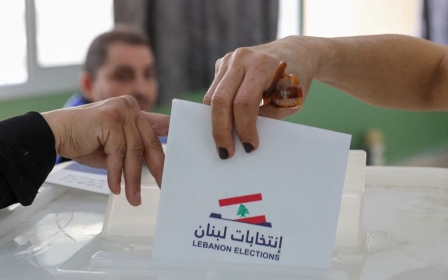Lebanon's opposition MPs now need to prove their victory not only symbolic
Hopes of a new political landscape in Lebanon have been raised following the election of 13 opposition lawmakers to the Lebanese parliament - but the hard work is only just beginning.
For almost three years, these independent candidates, who represent the 2019 anti-establishment protest movement, stood before the Lebanese parliament, calling for the government to resign.
They now enter parliament in the hope of changing the status quo and shaking up the system from within, bringing with them a new perspective and hope for some in Lebanon. But before they have even been sworn in, question marks are being raised over whether they can actually produce change, work as an effective opposition, or even work together at all.
Gino Raidy, a Lebanese blogger and activist, is optimistic. "I think it was a massive success. This is the first time in Lebanon's recent history that a big chunk of the Lebanese population feels represented, myself included," he told Middle East Eye.
Lebanon went to the polls last Sunday following an economic crash, which has led to the depreciation in value of the Lebanese lira and mass protests calling for an end to corruption and the rule of the country's sectarian political elite.
The economic crisis was compounded further by the coronavirus pandemic and the Beirut explosion that killed more than 200 people.
Only 49 percent of the population went out to vote, with the election doing little to change the political status quo of the current ruling class.
The major parties, such as Hezbollah, Amal, the Free Patriotic Movement and Lebanese Forces all picked up large numbers of seats. But many of Hezbollah's smaller allies lost seats to the independents, and now the Shia movement's bloc has lost its majority in parliament.
A shock to the system
The opposition candidates emerged after the street protests, which had been attended by thousands of demonstrators, slowly withered away.
Some people lost their jobs, and others could no longer afford to be on the streets every day due to the increased cost of living.
The pandemic prevented protesters further from organising themselves to take to the street, forcing organisers to change tact and figure out another way to take down the government.
'I think that the opposition bloc can change the political life in parliament and play a more effective role for the sake of the people,'
- Sami Atallah, The Policy Initiative
This shift in strategy was seen in union elections and student union elections in universities across Lebanon, leading to opposition groups gaining significant victories.
Sami Atallah, founding director of the independent think tank The Policy Initiative, described the victory of the 13 opposition candidates as a shock to the system.
"We need new people who can assume a proper role in governing or contribute to governing the country. I think that the opposition bloc can change the political life in parliament and play a more effective role for the sake of the people," Atallah told MEE.
Despite running on a platform inspired by the 2019 protest movement, the opposition candidates could not unite under one banner.
Atallah said many opposition groups were fragmented and not able to win many seats because they were competing against each other - often in the same election district.
"Some of the opposition groups had different political positions," said Atallah.
"Others lacked chemistry by working together with other groups, although they had the same position on the key political issues."
Need for a united opposition
Alongside the 13 opposition groups' candidates, 16 other independent candidates also won seats. These candidates belonged to groups not part of the 2019 protests, or were former MPs linked to traditional parties that resigned from parliament following the Beirut blast in 2020.
The two political blocs have the potential to work together on some key issues that can make life difficult for the traditional political parties.
Raidy told MEE that independent MPs such as Michel Moawad and Neemat Frem can cooperate with the independent opposition MPs on several issues, even if they refuse to be part of one parliamentary bloc.
One of the first tests for the newly elected parliament will be the election of the speaker of parliament, a position occupied by Amal leader Nabih Berri since 1992. His re-election is likely to be at the centre of the next political storm in the country.
Although blocs have not formed in the new parliament, the Lebanese Forces, opposition MPs and some other independents are likely to vote against Berri's re-election.
Despite not officially being part of one bloc, the opposition candidates won the same number of seats as Hezbollah - making them the fifth-largest bloc in parliament - and could use their numbers to assert their political weight in negotiations.
"Opposition candidates need to make sure they are coherent. The main concern is that they could implode, divide or fail to be coherent as a group. And we don't want that because they will become less impactful," said Attalah.
"The two issues that will unite the opposition candidates are the economic reforms that seek to stop the country's financial implosion, and accountability for the Beirut blast."
Attalah pointed out that the opposition MPs should capitalise on their successes and turn that into an electoral power that could change political dynamics through votes.
That power has been manifested in the victories achieved by opposition candidates in several professional syndicate elections and university elections since the 2019 anti-establishment protest movement.
Raidy said that many who took part in the protest movement have been hit by the worsening economic crisis, which prompted many to turn to elections as a different means of protest.
"Street protests began to be less effective. Some people lost their job, and those who remained in Lebanon couldn't afford to go the street every day," he said.
"I am already lobbying the new MPs to prepare for the municipality elections scheduled for next year. We will then have the chance to enact the reforms that can impact the people directly."
Middle East Eye delivers independent and unrivalled coverage and analysis of the Middle East, North Africa and beyond. To learn more about republishing this content and the associated fees, please fill out this form. More about MEE can be found here.


